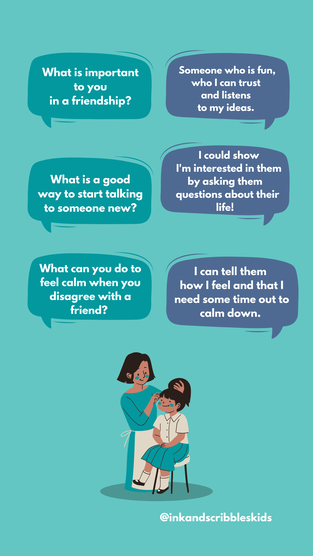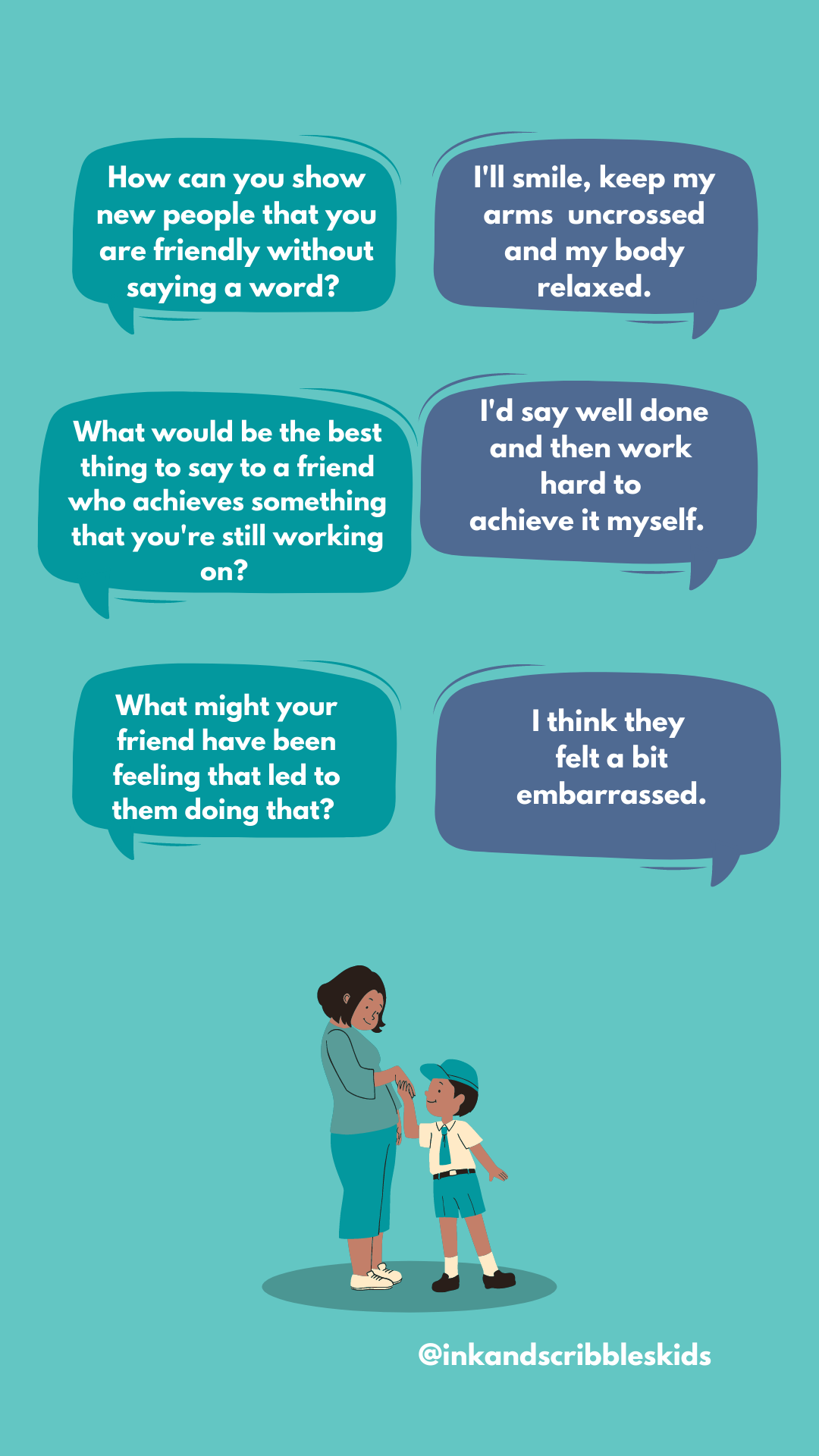Having this conversation means your child is prompted to explore the type of person he/she wants to spend time with and be close to, rather than 'following the crowd' or building a friendship simply because they sit next to someone. What is a good way to start talking to someone new? Preparing our kids with social skills that make friendship building a little less awkward is crucial. Many children, especially introverts, those with social anxieties or lacking confidence will find it useful to have planned ahead of time when it comes to breaking the ice and making a new friend! It's a great way to start a conversation about first impressions and also break down the negative beliefs that can form around starting conversations with new people. Many kids believe they can't start a conversation, or that the new person won't want to speak to them. The reality is in new situations we're usually all a bit nervous and will be glad to have someone talk to us! What can you do to stay calm when you disagree with a friend? Again, a good pre-emptive question to open a conversation about regulation skills in challenging moments. If your child is older, you might even go on to explore the concept of perception and how each of us can see the same situation a slightly different way. Empathy is an important part of relationships.
It can be easy for children to think negatively in these scenarios so why not get ahead and start teaching them that someone else's achievement doesn't impact their own. We're all on our own path and will get there in our own time. A kind 'well done' will make a friend feel good and your child can channel their envy into some extra effort and achieve themselves which makes an all round win win!
What might a friend have been feeling that lead to them doing that? Ah, possibly the most important question to help children navigate friendships. Kids can do things that hurt our children's feelings and our mama bear can rise up into fierce protective mode. But, aside from bullying, which is an entirely different issue to handle, usually children do things or say unkind things because they are struggling or overwhelmed. This question does two things. It develops empathy, helping your child understand that their friend was probably having a hard time. But secondly, it helps them develop resilience. Knowing someone else's behaviour isn't about us is super empowering! It helps us stay emotionally grounded and bounce back from things that could otherwise lead to our own emotional dysregulation. It takes time, but I've done this for so long with my 11 year old that she is generally able to ground herself during stormy friendship moments because she can now look beyond the behaviour. It doesn't take away the hurt of a friendship fall out but it can most certainly lessen the impact. Try having these 6 conversations and watch your child develop their emotional intelligence!
0 Comments
Leave a Reply. |
Categories
All
Archives
April 2024
AuthorHey! I'm the founder, creator and voice of Ink and Scribbles. Sharing thoughts on child well-being and parenting that are based on my teaching and parenting experience, and NLP learning. |



 RSS Feed
RSS Feed